
Cardiologist Breaks Down 3 Unexpected Red Flags Of A Weak Heart
The heart is undoubtedly one of the most vital organs in the human body. It is responsible for pumping blood throughout the body, supplying essential oxygen and nutrients to tissues and organs. As a result, maintaining good heart health is crucial for overall well-being. However, many people may be unaware of the subtle signs that indicate their heart may not be functioning optimally. While chest pain and fatigue are often associated with heart problems, there are other unexpected red flags that could signal a weak heart.
In a recent YouTube video, Dr. Jeremy London, a seasoned cardiothoracic surgeon with more than 25 years of clinical experience, broke down three key warning signs that may indicate heart issues. His advice offers a valuable insight into early detection, which could help prevent serious cardiovascular problems. Let’s take a closer look at the three unexpected red flags of a weak heart and how you can take action to protect your cardiovascular health.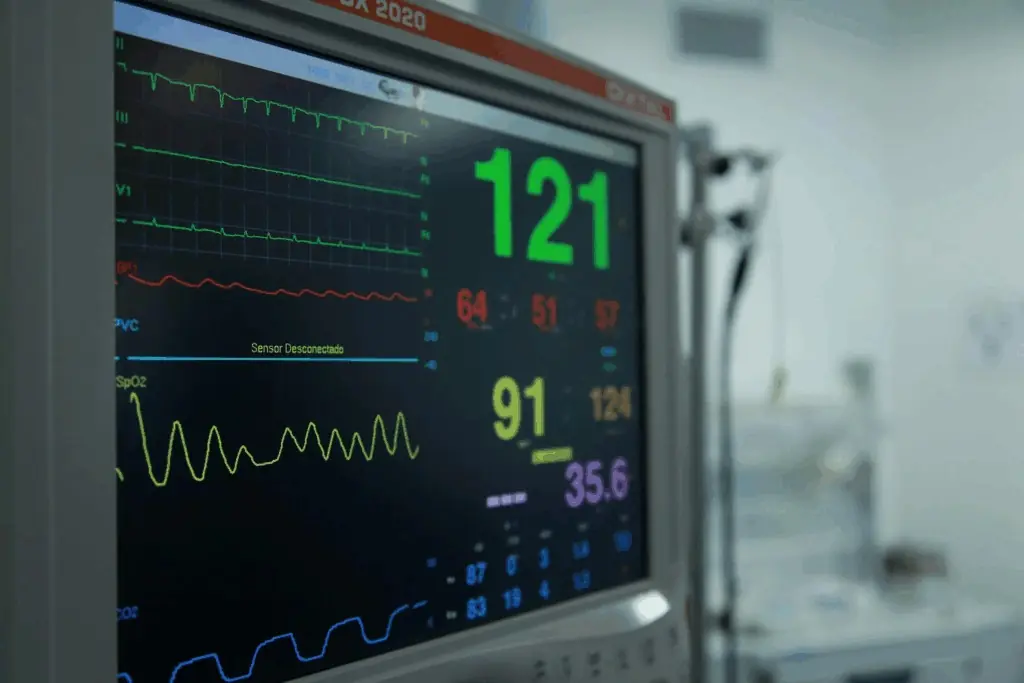
Understanding Heart Function and Why It Matters
Before delving into the specific red flags, it’s important to understand the role of the heart and how its function is measured. The heart works as a pump that moves oxygenated blood through the body, and its effectiveness is crucial for overall health. Cardiologists, such as Dr. London, often assess heart function through diagnostic tools like echocardiograms, which provide valuable information about how well the heart is performing its job.
An echocardiogram uses ultrasound technology to create images of the heart and measure how well the heart is pumping blood. One critical metric measured during this procedure is the ejection fraction (EF), which indicates the percentage of blood the heart pumps with each beat. A normal ejection fraction is typically between 65% and 70%. If the ejection fraction is lower than this, it may indicate heart failure or a weakened heart.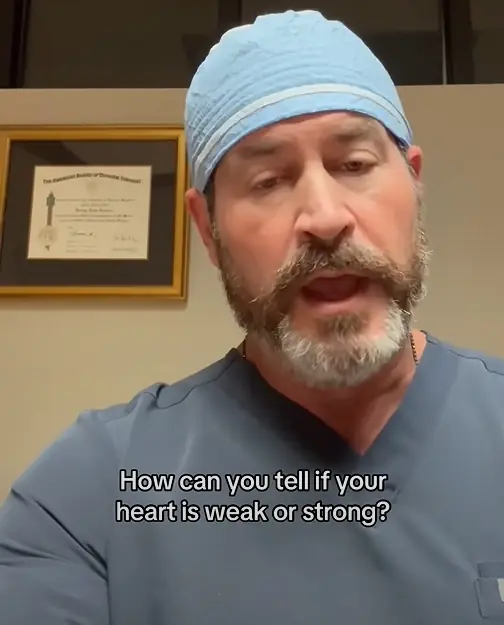
Dr. London explained, “This typically can measure ejection fraction, which is the percentage of blood that’s ejected from the heart with each beat. Normal is 65 to 70 percent. If it’s markedly decreased from that, that could be an indication of heart failure or a weak heart.” This measurement is essential, especially in the context of surgery. A strong heart is crucial for handling the stress of surgery and recovering afterward, as Dr. London noted, “In my world of cardiac surgery, heart function is the single most important determinant of how patients do with surgery.”
The 3 Red Flags of a Weak Heart
Now, let’s examine the three unexpected red flags that Dr. London highlights as indicators of a weak heart. These signs may not be immediately linked to heart problems, but they could be subtle signs that something is wrong.
1. Swollen Legs
One of the less obvious signs of a weak heart is swelling in the legs. This condition, known as edema, can occur when the heart is unable to pump blood effectively. When the heart is weak, it can’t pump blood efficiently, causing fluid to build up in the lower extremities. The legs, ankles, and feet may appear swollen, and this fluid retention can cause discomfort.
Dr. London explained, "Swollen legs… all the signs of many different heart conditions should be red flags." While swelling in the legs can also be caused by other conditions like kidney disease or venous insufficiency, persistent or unexplained leg swelling should not be ignored. It is important to seek medical advice if this symptom appears, as it could be a sign of heart failure or other cardiovascular issues.
2. Trouble Breathing While Lying Down
Another unexpected red flag is difficulty breathing when lying flat. This condition, known as orthopnea, occurs when the heart is unable to pump blood effectively, leading to fluid buildup in the lungs. When you lie down, the fluid may spread throughout the lungs, making it more difficult to breathe. If you find yourself waking up in the middle of the night gasping for air or needing to prop yourself up with pillows to sleep, it could be a sign of heart failure.
Dr. London noted, "The inability to lay flat and breathe comfortably... all the signs of many different heart conditions should be red flags." People who experience this symptom may feel short of breath, even when they are at rest, and this can significantly impact their quality of life. It is essential to seek medical attention if you experience trouble breathing while lying down, as it could be a sign of a weak heart or worsening heart failure.
3. Shortness of Breath When Walking
Shortness of breath is a common symptom of heart issues, but it may not always be immediately associated with cardiovascular problems. Dr. London pointed out that experiencing shortness of breath when walking or performing light physical activities could be an indication of a weak heart. When the heart is weak, it is less efficient at pumping oxygenated blood to the muscles, leading to fatigue and breathlessness.
He said, "Shortness of breath when walking... all the signs of many different heart conditions should be red flags." If you notice that simple tasks, like walking up a flight of stairs or taking a brisk walk, leave you winded, it may be time to assess your heart health. This symptom can indicate heart failure, especially if it occurs alongside other signs like swelling or trouble breathing when lying flat.
Why Early Detection of Heart Issues Matters
Identifying the warning signs of a weak heart is crucial for preventing further complications. Early detection of heart failure or other cardiovascular issues allows for timely intervention, which can significantly improve outcomes and quality of life. Dr. London emphasized that a strong heart is vital, not just for overall health but also for undergoing surgery. He said, "Patients with strong hearts do much better than patients with weak hearts." A weak heart can complicate surgical procedures, delay recovery, and increase the risk of postoperative complications.
In addition to detecting potential heart problems early, knowing the signs of a weak heart can help prevent more serious complications like heart attacks, strokes, and organ failure. Heart failure, for example, is a progressive condition that, if left untreated, can cause the heart to become increasingly inefficient at pumping blood. By recognizing the early red flags and seeking medical attention, individuals can take proactive steps to manage their heart health.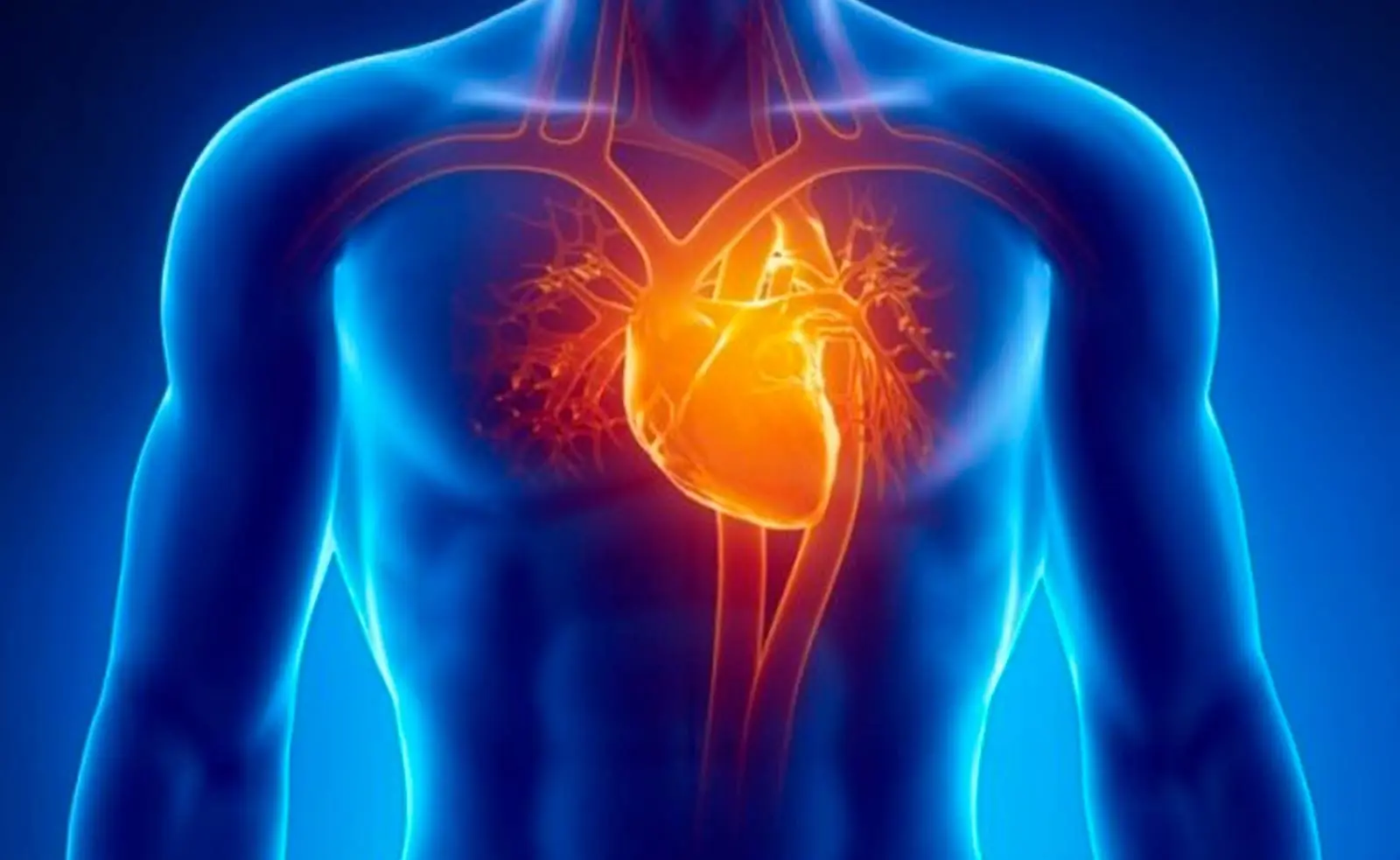
How to Improve Your Heart Health
Maintaining a healthy heart involves a combination of lifestyle factors, including diet, exercise, and managing stress. Dr. London emphasized the importance of regular physical activity in improving heart health. "Exercise can help you feel less stressed and strengthen your heart," he said. Regular exercise strengthens the heart muscle, improves circulation, and helps lower the risk of cardiovascular diseases.
In addition to exercise, it’s essential to adopt a balanced diet that supports heart health. Dr. London recommends eating a diet rich in fruits, vegetables, whole grains, and lean proteins. Reducing the intake of saturated fats, refined sugars, and processed foods can also help lower the risk of heart disease.
Stress management is another key factor in maintaining a healthy heart. Chronic stress can increase blood pressure, contribute to inflammation, and negatively impact heart function. Finding healthy ways to cope with stress, such as through relaxation techniques, yoga, or mindfulness, can significantly benefit heart health.
Getting adequate sleep is also crucial for heart health. Studies have shown that poor sleep can increase the risk of heart disease and contribute to high blood pressure and inflammation. Dr. London advises that people prioritize good sleep hygiene to help keep their heart healthy.
Conclusion
A weak heart may not always present with obvious symptoms, but subtle red flags like swollen legs, trouble breathing while lying down, and shortness of breath when walking should never be ignored. Dr. Jeremy London’s insights into these unexpected warning signs provide valuable information for those looking to safeguard their heart health. Early detection of heart issues is essential for preventing complications and improving long-term outcomes.
By maintaining a healthy lifestyle, staying active, and paying attention to your body’s signals, you can protect your heart and enjoy a long, healthy life. If you experience any of the red flags mentioned above, it’s crucial to seek medical advice and undergo the necessary tests to assess your heart health. After all, a healthy heart is the cornerstone of overall well-being, and taking care of it should be a priority for everyone.
News in the same category


Taiwanese woman’s stomach perf0r@tion linked to common morning coffee mistake

Researchers Make Breakthrough in H.I.V Cure: A New Treatment Could Reveal the Virus and Aid in Its D3struction
Researchers in Australia have taken a major step forward in the search for a cure for HIV, developing a groundbreaking treatment that forces hidden fragments of the virus to expose themselves, enabling the immune system to target and eliminate these viral

Doctors issue urgent warning over Mounjaro 'golden dose' hack that could put your life at risk
As the use of Mounjaro continues to grow, it is crucial for users to be aware of the potential risks associated with the "golden dose" hack.
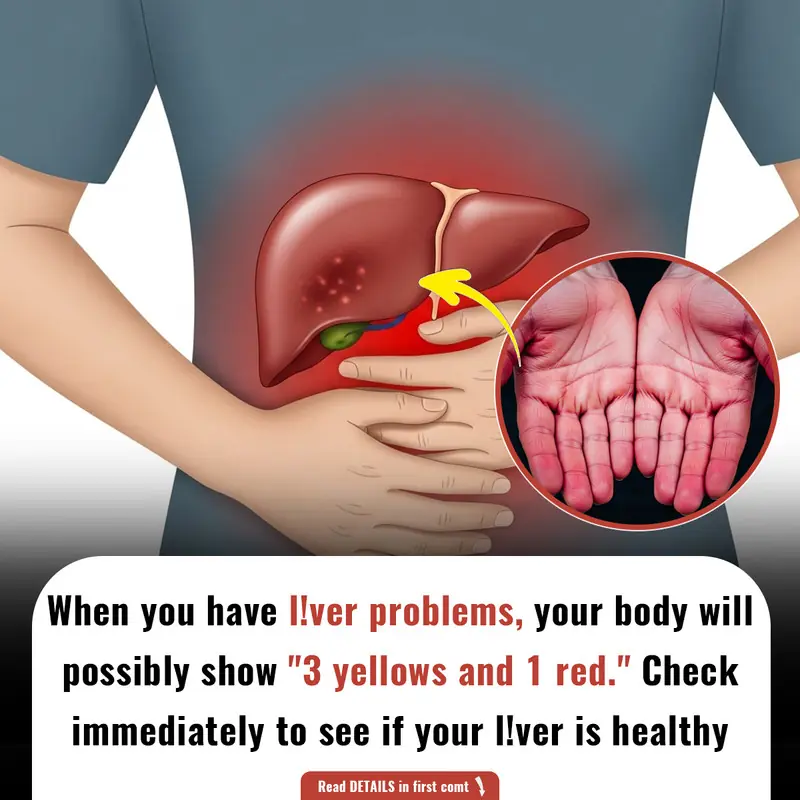
3 Yellow Signs and 1 Red Flag: Check Now to See If Your Liver is Healthy

4 Common Meat Thawing Mistakes That Could Put Your Family's Health at Risk

Doctor reveals two little-known signs of skin cancer that everyone misses
Along with the more obvious signs such as changes in moles, these hidden symptoms should be taken seriously.

Why You Should Unplug the Hotel TV Immediately After Checking In

Doctor warns of alarming health risks of sleeping with a fan on during a heatwave
As the heatwave looms and temperatures continue to rise, it is essential for individuals to consider the hidden health risks associated with sleeping with a fan on.

How to Keep Ripe Avocados Fresh and Creamy for Days

Secret cleaning tip: how to keep your floors clean and dust-free for seven days

How to Tell the Difference Between Naturally Ripened Durian and Chemical-Ripened Ones

3 Simple Items That Help Save Electricity for Your Fridge

The Silent D@nger: 4 'Healthy' Vegetables That Can H@rm Your Kidneys
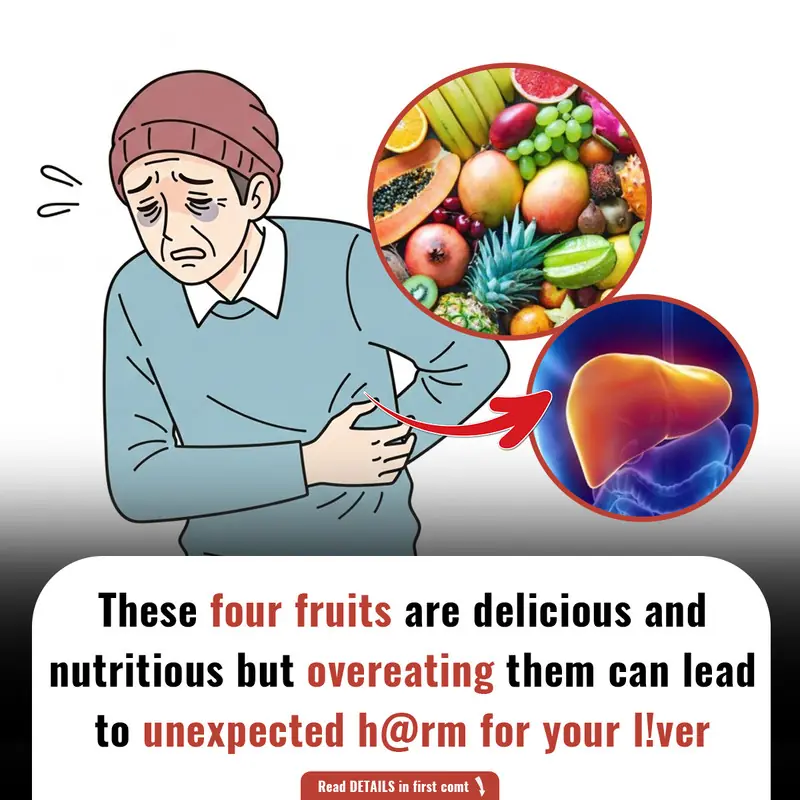
Top 4 Fruits to Limit for a Healthier Liver
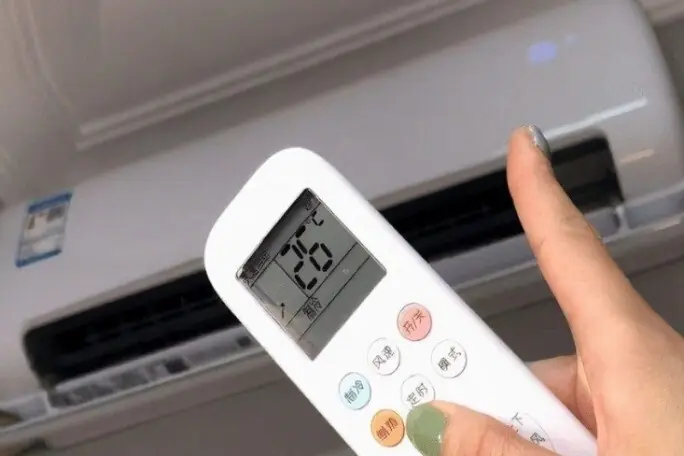
Why Smart People Never Set Their Air Conditioner to 26°C at Night

How to Position Your TV in the Living Room for Optimal Health and Wealth

Hidden D@ngers on Your Dinner Plate: 3 Common Vegetables That May Be D@m@ging Your Digestive Health

Doctors warn just one glass of this drink a day could increase risk of being diagnosed with cancer
A doctor in New York City has discovered a worrying trend between a drink almost two-thirds of Americans enjoy and an aggressive cancer.
News Post

5 Household Items You Should Never Put in the Washing Machine

Taiwanese woman’s stomach perf0r@tion linked to common morning coffee mistake

New ‘Nimbus’ Covid Variant Could Spark Summer Wave, Experts Warn
Scientists have raised concerns about the highly contagious ‘Nimbus’ Covid variant, which is rapidly spreading and could trigger a surge in infections this summer, urging those at risk to get vaccinated.

Researchers Make Breakthrough in H.I.V Cure: A New Treatment Could Reveal the Virus and Aid in Its D3struction
Researchers in Australia have taken a major step forward in the search for a cure for HIV, developing a groundbreaking treatment that forces hidden fragments of the virus to expose themselves, enabling the immune system to target and eliminate these viral

Doctors issue urgent warning over Mounjaro 'golden dose' hack that could put your life at risk
As the use of Mounjaro continues to grow, it is crucial for users to be aware of the potential risks associated with the "golden dose" hack.

Homemade Rice and Flaxseed Gel: A Natural Skincare Miracle for Youthful, Glowing Skin
By incorporating this DIY gel into your routine, you can achieve youthful, glowing skin without the need for harsh chemicals or expensive products.

DIY Rice Water Elixirs to Stop Hair Loss, Boost Shine, and Achieve Lush Hair
These DIY rice water recipes can help you achieve longer, healthier, and more vibrant hair without the need for harsh chemicals or expensive treatments.

DIY 3 Seed Drink For Losing Weight Fast: Natural, Effective, and Easy to Make
By combining cumin, fennel, flaxseeds, carom seeds, and ginger, you can support your body’s natural fat-burning processes, improve digestion, and reduce bloating. This natural remedy is affordable, easy to make, and free from harmful chemicals.

3 Yellow Signs and 1 Red Flag: Check Now to See If Your Liver is Healthy

4 Common Meat Thawing Mistakes That Could Put Your Family's Health at Risk

Ancient Indian Hair Oil Remedy: Get Crazy Hair Growth Naturally
The ingredients in this ancient Indian remedy work together to nourish and revitalize the scalp, providing your hair with the nutrients it needs to grow strong, thick, and beautiful.

Homemade Neem Gel for Clear and Flawless Skin: Your Ultimate Natural Solution for Acne, Blemishes, and Aging
Incorporating neem gel into your skincare routine is a simple and effective way to achieve clear, healthy, and radiant skin.

Doctor reveals two little-known signs of skin cancer that everyone misses
Along with the more obvious signs such as changes in moles, these hidden symptoms should be taken seriously.

Why You Should Unplug the Hotel TV Immediately After Checking In

Doctor warns of alarming health risks of sleeping with a fan on during a heatwave
As the heatwave looms and temperatures continue to rise, it is essential for individuals to consider the hidden health risks associated with sleeping with a fan on.

How to Keep Ripe Avocados Fresh and Creamy for Days

Secret cleaning tip: how to keep your floors clean and dust-free for seven days

How to Tell the Difference Between Naturally Ripened Durian and Chemical-Ripened Ones

Homemade Eye Roll To Get Rid Of Dark Circles: The Ultimate Natural Remedy for Dark Circles
The homemade eye roll remedy we’ve shared today combines the soothing, brightening, and hydrating powers of olive oil, aloe vera, lemon zest, and raw milk to help reduce puffiness, lighten dark circles, and restore the vitality of the delicate skin arou